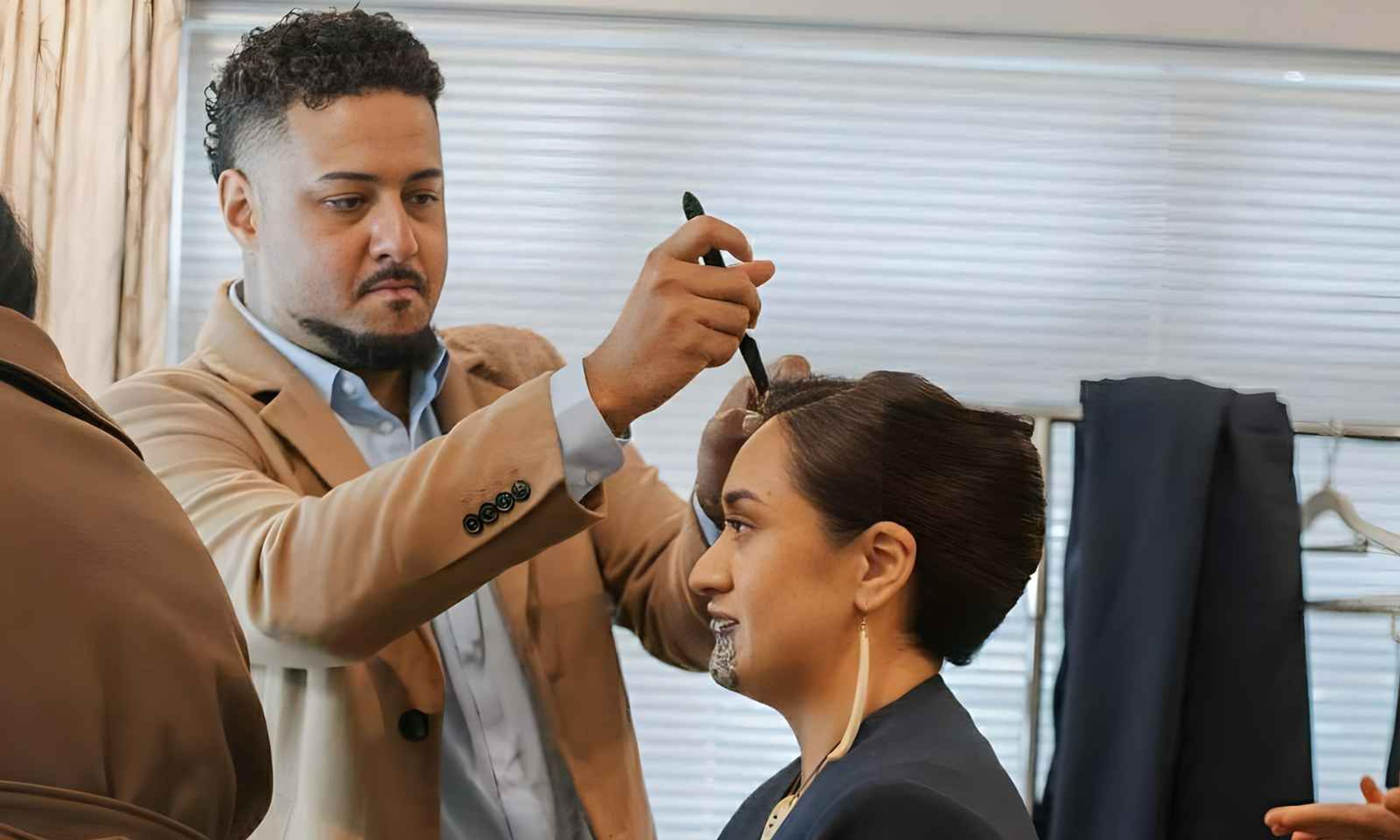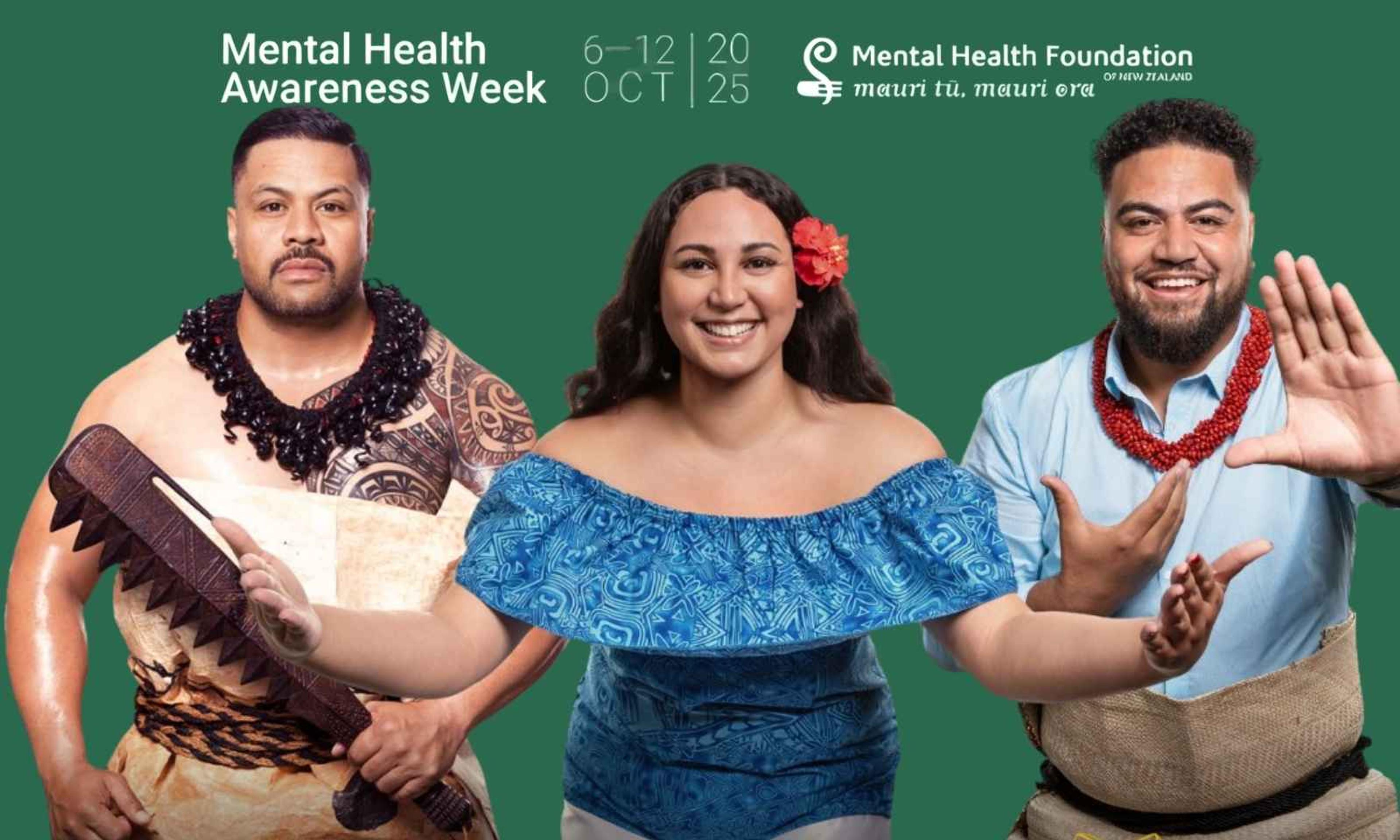

Mental Health Awareness Week 2025’s theme is ‘Top Up Together’.
Photo/Facebook/Le Va/Mental Health Foundation
‘Don’t wait until you’ve run out of juice’: A Pacific mental health leader’s message
Dr Elizabeth Mati from Le Va is urging Pacific people to prioritise their wellbeing daily, as Mental Health Awareness Week encourages the importance of mutual support among New Zealanders.


Ancient DNA shows how Pasifika carried pigs across the ocean


Holiday Classics: The sports films that bring families together

From the friendly isles to Koroneihana: The Tongan hairstylist trusted with a Queen

Ancient DNA shows how Pasifika carried pigs across the ocean


Holiday Classics: The sports films that bring families together
Mental Health Awareness Week (MHAW) is underway across Aotearoa, with this year’s theme focused on encouraging people to strengthen their connections with others.
From 6 to 12 October, MHAW’s theme, “Top Up Together”, is part of a nationwide wellbeing campaign and highlights the Five Ways to Wellbeing: connect, give, be active, take notice, and keep learning.
Established in 1993, MHAW has grown from a small initiative into a major nationwide movement that promotes everyday actions to improve mental health. The campaign aims to give people the tools to look after their mental health, while also pushing for better systems, services, and social conditions.
For Pacific communities, culturally relevant support is essential. Speaking with William Terite on Pacific Mornings, Dr Elizabeth Mati, the Chief Executive of Le Va, explains that her organisation’s mission to support Pacific communities in achieving optimal health, and well-being.
“Le Va is a national mental health organisation designed to support Pacific communities to have the best possible health and well-being outcomes and to thrive and unleash their full potential,” Mati says.
“We do that by supporting the mental health workforce with really culturally relevant tools and services and resources. Ensuring that the programmes that we deliver, such as Mental Wealth, Atu-Mai, are developed by Pacific for Pacific people.”
The campaign is backed by research that shows engaging in activities such as volunteering, cultural practices, and participating in shared learning consistently boosts people’s mental health.
Listen to Dr Elizabeth Mati’s full interview below.
Mati says there is a significant shift in how Pacific communities are approaching mental health. She explains that a decade ago, suicide and mental health were rarely discussed publicly.
“It was something that we wouldn't even have interviews on the radio about. It wasn't on everyone's radar as it is today. So there’s been a lot of progress made, more willingness to talk about the problem and also recognition across our community.”
She says youth are leading this change. “They're ready to discuss it, and are discussing mental health. So it's important that we as adults, as elders, create those spaces so that they can talanoa [speak] and share.”
Despite these positive developments, Mati says challengers remain. Le Va is actively working to strengthen the Pacific mental health workforce, which she says is growing but still underrepresented in senior clinical roles. She also emphasises the need to support practitioners as well.
Historically, Pacific communities have faced challenges in finding the appropriate language to describe mental health experiences, contributing to stigma.
“We don't even have the terms in our Pacific languages to describe mental health challenges and problems. Even as we translate some of the Western concepts of mental health into Pacific languages, we're having to develop what those terms actually are.
“So some of these concepts are new to us as Pacific people. Another reason is because we are such a collective culture and we care about others, we haven't often valued reflecting and thinking about our own well-being.”
“That's a reason why we haven't focused as much on our own mental health. I also feel that in our culture we may [believe] we need to be strong, we need to move on, we need to be tough, and that speaking about mental health and addressing that is weak.”
This year’s MHAW also highlights that small, everyday actions, including connecting with others, can have a lasting impact on mental wellbeing. Mati hope for people is that they do not wait until they are burnt out before taking care of themselves.
“Mental health is like physical health, don't wait till you have run out. The theme is ‘top up’. Don't wait until you have completely run out of juice. Do small things to look after yourself.
“Take a rest, take a break, watch a funny movie, go for a walk, because we all have mental health and it's important that we look after it regularly.”
For more information on Mental Health Awareness Week, such as events and resources, click here.